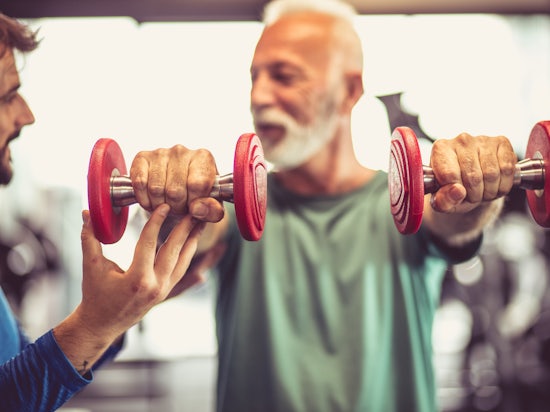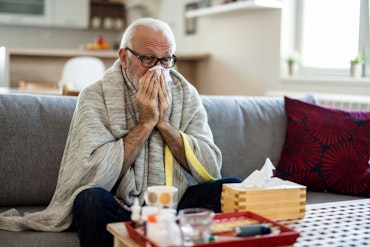Strength exercises could help older adults get back on their feet
Older adults who participate in strength training may have a better chance of being able to get up independently after they have a fall, new research led by Curtin University has found.

Study finds resistance training could help seniors rise independently after a fall. (Source: Shutterstock)
The research, published in the journal Disability and Rehabilitation, found that a combination of education and resistance training including upper and lower body exercises may improve older people’s ability to get up after a fall unassisted if they are not injured.
Lead author Dr Elissa Burton from the School of Physiotherapy and Exercise Science at Curtin University says the research aimed to determine the effectiveness of interventions to improve older adults’ ability to rise from the floor.
“One in three people living in the community aged 60 and over have at least one fall per year, and while many falls do not result in major injury or death, they can have a profound effect on the person and may restrict future activity due to fear of falling,” Dr Burton says.
“Up to two-thirds of older people who fall cannot get themselves off the floor independently, so our research aimed to assess whether interventions such as strength training could help to improve this, while also identifying factors that may contribute to this.
“The research reviewed 41 studies that evaluated the effectiveness of rising from the floor unassisted and found that resistance training interventions that included upper and lower body exercises may improve an older person’s ability to get up off the floor independently.”
Dr Burton says previous research suggests that a number of negative physical consequences can result from not being able to get up after a fall.
“These include increased risk of hospitalisation, poor recovery of physical function, increased possibility of admission into residential aged care, and even death,” she says.
“Teaching the older population specific techniques on how to get up after a fall is critical and in turn could help reduce the negative physical and emotional effects that occur as a result of a fall.”
The paper was also co-authored by researchers from the School of Physiotherapy and Exercise Science, School of Nursing, Midwifery and Paramedicine, and the School of Public Health at Curtin University, and the Western Australian Department of Health.











![The new Aged Care Act exposure draft is slated for release in December of 2023, but advocates hope to see it rolled out on January 1, 2024. [Source: Shutterstock]](https://agedcareguide-assets.imgix.net/news/articles/wp/agedcareact__0811.jpg?fm=pjpg&w=520&format=auto&q=65)












Comments